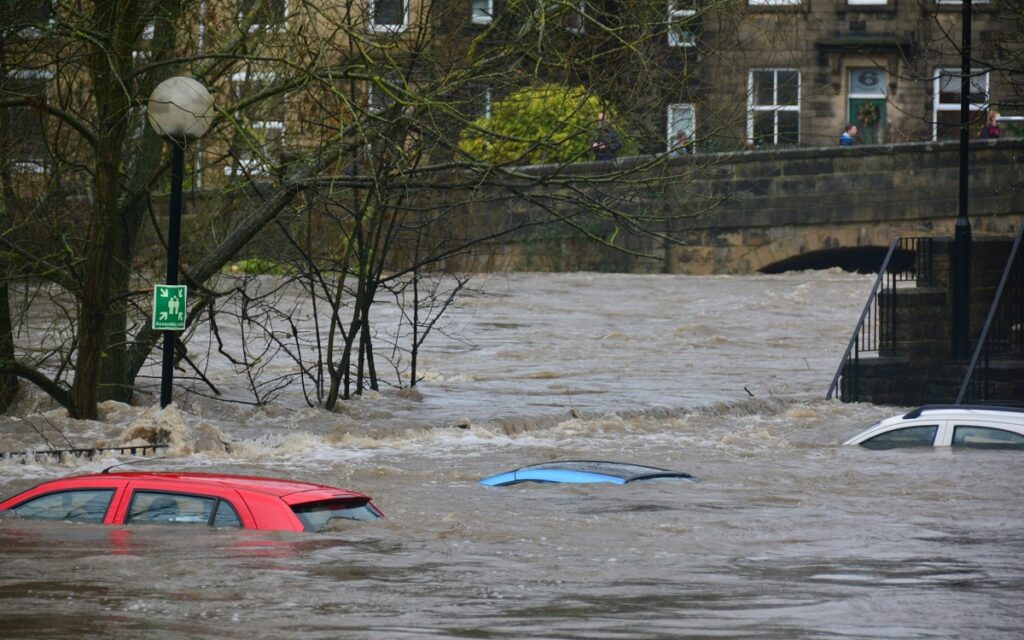This project will examine how the police and local resilience forums understand, prepare for, and respond to climate vulnerability.

This project will deepen our understanding of climate vulnerabilities and identify strategies and best practices employed by local policing and governance actors to mitigate them. The research will also highlight ways in which local communities are adapting to the impacts of climate change.
While the effects of the changing climate vary considerably, it is widely accepted that climate change poses “severe, interconnected and irreversible risks” to ecosystems, biodiversity and human societies. The increasing frequency and severity of extreme weather events in the UK are symptomatic of the global impacts of human-induced climate change. Recent weather events, including torrential rains and storms such as Storm Babet (October 2023) and Storm Isha (January 2024), are stark reminders of the wide-ranging risks and vulnerabilities linked to environmental disasters. They underline the critical importance of local place-based climate adaptation, preparedness, and capacity-building.
Climate change poses significant challenges for policing, including managing the impacts of extreme weather events on vulnerable communities, combating complex environmental crimes and addressing social disruptions such as protests and climate activism. While these issues are generally acknowledged at a national strategic level, as evidenced by the UK’s National Adaptation Programme, the implementation of national strategies into operational policing, preparedness, and capacity-building at a local level remains unclear.
This project aims to address these knowledge gaps by focusing on the role of both the police and Local Resilience Forums (LRFs). LRFs serve as the UK’s primary response to complex disasters and emergencies, functioning as multi-agency partnerships involving the police, emergency first responders, and various local and national agencies. Established under the Civil Contingencies Act 2004, LRFs are tasked with creating emergency plans to prevent or mitigate the impact of any incident on local communities.
This research has been co-designed in collaboration with practitioners, including the College of Policing, His Majesty’s Inspectorate of Constabulary in Scotland (HMICS), and the Police Foundation.
It aims to address gaps in knowledge about the impacts of climate change in exacerbating existing vulnerabilities, including socio-economic inequalities and intersectional disadvantage. Additionally, it seeks to identify local strategies for mitigating climate vulnerabilities and adapting to climate change. The project is underpinned by the following objectives:
- To examine the role and function of the police and Local Resilience Forums in the context of climate change.
- To understand how the police and LRFs categorise and track climate vulnerability, and how this preparation shapes localised response, mitigation and adaptation strategies and practices.
- To provide insights into the ways in which LRFs engage with local communities and leverage community-based groups to promote local resilience.
- To develop a scalable framework for future research consisting of multiple regional and national resilience partnerships across the UK.
It is widely acknowledged that the effects of climate change vary among different sections of local communities, even within the same geographical area. These discrepancies are influenced by social, economic, and political factors, as well as evolving social vulnerabilities. The presence of pre-existing vulnerabilities can affect a community’s ability to recover and adapt following climate disasters and extreme weather events.
The project will employ a case study design, concentrating on a single police force and Local Resilience Forum (LRF) area in England and Wales. Conducting an ethnography of a specific case study area will enable an in-depth examination of the impacts of climate change, as well as associated mitigation and adaptation strategies, within a localised context.
The data collection will include a literature review, documentary and policy analysis, a review of risk registers and vulnerability trackers, and semi-structured interviews with representatives from the police and LRF partner agencies. This will include senior leaders and front-line staff involved in disaster response and emergency management, as well as key community representatives.
Lead investigator
- Dr Ali Malik (University of Leeds)
Researcher
- Caroline Bjørnstad (University of Leeds)
Report
Read the research findings summary: Policing, vulnerability and community resilience in response to the climate crisis.


